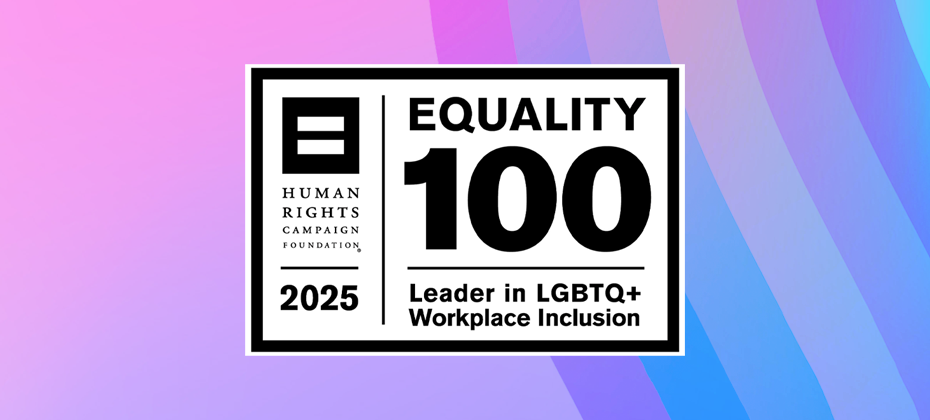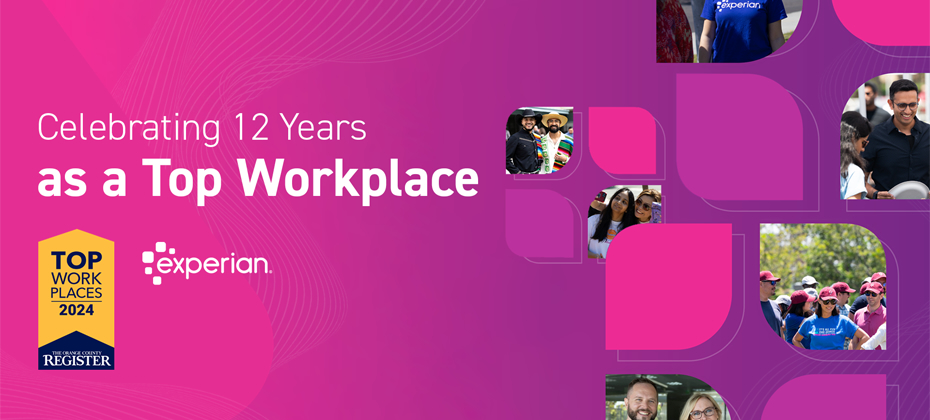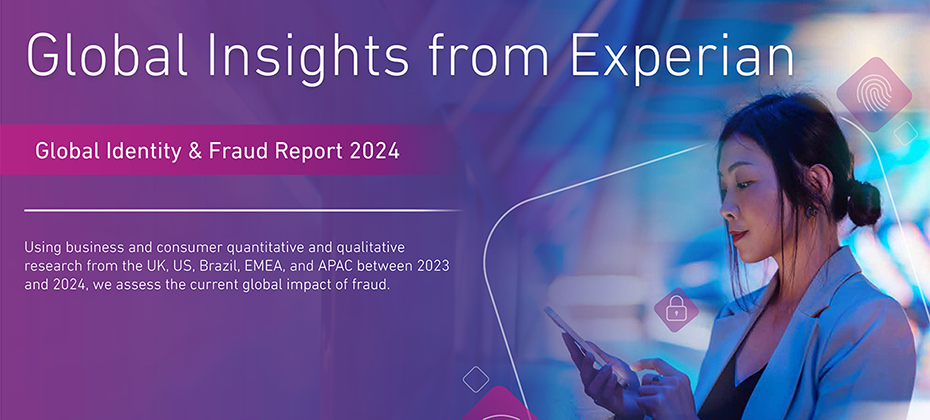News
What’s happening in our industry and what we’re doing

Homeownership is a goal for many across the income spectrum; however, the goal can often feel unattainable. Rising home prices, elevated interest rates and high down payments and closing costs are significant barriers to homeownership, particularly for first-time homebuyers. We also can’t forget that historical policies and practices made it nearly impossible for minorities to buy homes in certain areas, regardless of income, prohibiting families from building generational wealth—a ripple effect that continues to impact aspiring homeowners today. While banks and other mortgage servicers offer programs to help low- and moderate-income individuals and households, including down payment assistance, these programs only scratch the surface. Homeownership is more than just a down payment and the purchase price; it’s insurance, HOA fees, maintenance and repairs, property taxes, and more. But it’s not just the financial aspect; the mortgage process itself can feel complex and overwhelming. First-time homebuyers don’t know what they don’t know. The financial services and mortgage communities have an opportunity to demystify the mortgage and homebuying processes and equip prospective homebuyers with the knowledge to better plan and prepare for homeownership. Financial knowledge is the foundation for economic empowerment Because of the stigma surrounding homeownership, many consumers don’t believe homeownership is a possibility for them. The truth is it can be, and it’s our responsibility, as an industry, to help them realize it. That means going into communities and engaging people in a direct conversation, understanding the challenges they’re experiencing, and helping them navigate them. Some of the common questions we hear include: What is a good credit score to buy a home? How do I qualify? When is a good time to buy? Knowledge is power. People welcome the opportunity to learn more about the mortgage process. Fortunately, the onus doesn’t fall on any one organization. We all play a role. For instance, at Experian, we’ve worked with programs such as HomeFree-USA’s Fast Track to Homeownership, which is designed to get renters ready for mortgage approval and homeownership. Its intermediary network oversees 53 affiliated community and faith-based housing counseling agencies across the nation. Additionally, Experian is part the Mortgage Banker Association’s CONVERGENCE Collaborative, a charitable organization designed to address the racial homeownership gap. The effort brings together various stakeholders across the mortgage industry to provide the knowledge and resources to help underserved communities achieve their homeownership goals. Financial literacy is the cornerstone of economic empowerment. Collaborating with community-based organizations, as well as non-profits, can help members of the financial services and mortgage industries more effectively reach prospective homebuyers and help them develop a game plan to achieve their financial goals. Homeownership is a pathway to financial security—but for too many, it feels out of reach. Now is the time for industry-wide collaboration to create lasting impact. Through financial literacy and equitable access to mortgage opportunities, we can build a stronger, more inclusive housing market for future generations. Related Posts

In some instances, the ways in which lenders make decisions is not unlike looking through a keyhole. From this vantage point, there is some information, but it isn’t the whole picture. Lenders are often making decisions on a subset of information about a consumer. And for millions of people in America, including those who are thin-file or credit-invisible, the amount of information available is limited. Our goal is to help our clients gain a more representative understanding of consumers to better inform their decisions and ultimately better serve consumers. Credit reports and traditional credit scores will continue to be an extraordinarily important part of the process, but we’re continually asking ourselves: how we can leverage our unique vantage point to help our clients obtain a more complete picture to create new opportunities for consumers? One proven way we can achieve this is by helping financial services companies more easily leverage consumers’ banking and transaction information through open banking. This information can advance financial inclusion by providing a more comprehensive and accurate view of a consumer while giving consumers greater control of their data. And our research shows most consumers are onboard, with 71% stating they’re willing to provide this information if it increases their likelihood of qualifying for credit.1 Introducing Cashflow Score Today, we’ve unlocked an exciting milestone in making the use of this information more accessible with the launch of Cashflow Score. This is the latest in a short list of products that can be used to make lending decisions, leveraging consumer-permissioned transaction information to more accurately assess risk, particularly for credit invisible or un-scorable consumers who have a bank account. The score provides lenders with a clearer view of an applicant’s financial behavior, including income, expenses, cash reserves, and more, to enhance risk assessments with up to 25% lift in predictive performance.2 Our solution can easily integrate into lenders’ existing workflows in conjunction with traditional credit scores for credit decisions. This means lenders can now leverage Cashflow Score in first and second chance credit decisions to assess applicants with limited or nonexistent credit histories, using only bank account data. The future of financial inclusion Open banking and transaction data can help create a future where we can help bring financial power to all. As the only financial services company offering both traditional scores and cashflow-based scoring solutions developed in-house, we are uniquely positioned to connect credit outcomes with transaction data. And we’re just scratching the surface with solutions like Cashflow Score. As we continue to innovate and embrace the possibilities of open banking, I am optimistic about what lies ahead and how we can expand the keyhole even further. Together, we can create a more inclusive financial system where everyone has the opportunity to thrive. [1] Experian commissioned Atomik Research to conduct an online survey of 2,005 adults throughout the United States. The makeup of the sample is representative of the U.S. population based on national census data regarding demographic variables such as gender, age and geographical regions. The margin of error for the overall sample is +/- 2 percentage points with a confidence level of 95 percent. Fieldwork took place between March 17 and March 21, 2024. [2] Based on Experian analysis when Cashflow Score is compared to conventional credit scores, tailored to targeted risk tiers. Predictability based on KS. Related Posts

Experian’s groundbreaking agentic AI-powered tool, Experian Assistant, has earned the prestigious 2025 FinTech Breakthrough Award for Analytics Innovation. This recognition comes on the heels of the product solution winning the BIG Innovation Award. These awards underscore Experian’s commitment to pushing the boundaries of innovation by helping our customers achieve success. 24/7 Data Expert Integrated with the Experian Ascend Platform™, Experian Assistant functions as a 24/7 data expert, enabling financial institutions to optimize their credit and fraud models with ease. Using natural language processing (NLP), the virtual assistant guides users providing insights, recommendations and coding assistance. The impact is transformative: Experian Assistant cuts model-development timelines from months to just days—and even hours in some cases. By helping users analyze credit and fraud data, adjust model attributes and streamline workflows, it empowers organizations to innovate faster and make data-driven decisions with confidence. Powered by agentic AI technology, Experian Assistant reimagines how data scientists and analysts approach their work. It accelerates insights, fosters collaboration and empowers businesses to deliver exceptional customer experiences while reducing the time and resources needed to bring new initiatives to market. Driving Results While tailored for financial services, Experian Assistant’s capabilities extend across industries. Customers can leverage it for data exploration, model deployment, performance monitoring and faster time-to-market for new offerings. With Experian Assistant, users gain a powerful edge in scoring more consumers, optimizing processes and enhancing overall customer satisfaction. Commitment to Customers Experian received this prestigious award that recognizes those “who are dedicated to reshaping the FinTech industry through innovative technologies.” This accolade continues to build Experian Assistant’s position as a game-changing solution for Experian’s customers in financial services and beyond. Related Posts

At Experian, we have long championed the use of expanded data sources, including buy now, pay later information, to empower consumers while enabling lenders to make more informed decisions. However, concerns about the negative impact on consumer credit scores have historically prevented many buy now, pay later providers from reporting account information to credit reporting agencies. In an important step towards overcoming these challenges and supporting responsible lending, today, Affirm, one of the largest providers of pay-over-time loans, announced it is expanding its credit reporting with Experian. Greater transparency in buy now, pay later activity is key to helping consumers build their credit histories and supporting responsible lending.Scott Brown, Group President, Financial Services, Experian North America Affirm plans to report all pay-over-time loan products issued from April 1, 2025, and beyond, including Pay-in-4. The move will help drive greater transparency into the buy now, pay later market while helping consumers build their credit histories over time. “Affirm operates on the principles of transparency and putting consumers first, which is why we have been actively engaged with Experian and across our industry to build upon our credit reporting practices,” said Libor Michalek, President at Affirm. “Having all loans reflected in a consumer’s financial profile will help protect and empower borrowers. The buy now, pay later industry must evolve from simply providing flexible payment options to helping consumers build their credit histories and better manage their finances, and we are pleased to be taking this step with Experian.” Experian is committed to driving transparency in the BNPL industry without inadvertently negatively impacting consumers. Given this, the new loan reporting will not be factored into consumers’ traditional credit scores in the near term but may in the future as new credit scoring models are developed. With the new furnishing policy, consumers will be able to see on their Experian credit file information on all Affirm loans issued from April 1, 2025 onward. Consumers can receive an updated version of their Experian credit report at no cost daily by enrolling in a free membership and visiting www.experian.com or via Experian’s mobile app. “Greater transparency in buy now, pay later activity is key to helping consumers build their credit histories and supporting responsible lending,” said Scott Brown, Group President, Financial Services, Experian North America. “We have a longstanding history working with Affirm and applaud them for expanding the reporting of their pay-over-time products. This is the right thing to do for consumers, the industry and the economy at large. Our role as the first credit reporting agency to establish this partnership with Affirm underscores our shared commitment to improve consumer financial health and foster more informed lending decisions.” As BNPL information is reported to Experian by additional BNPL providers, a consumer’s BNPL history will be visible to lenders who request to view it as part of an Experian credit report–enabling lenders to make more informed decisions when determining whether to extend credit offers. We look forward to working with other leading BNPL providers to drive greater transparency in the BNPL space that will benefit lenders and consumers alike. Related Posts

As a father to two young adults, I know how important it is to educate each other on financial health and the tools available to us to improve access and opportunity. I believe strongly in the transformative impact of financial empowerment, and so does Experian. Our mission of Financial Power to All™ inspires us to create products and opportunities that help individuals achieve their financial goals. Consumer debt is at an all-time high, according to the New York Federal Reserve which reported that total household debt increased by $93 billion in the fourth quarter of 2024 to $18.04 trillion. Debt can be a significant barrier to financial stability and success, limiting opportunities, creating stress, and hindering individuals from reaching their full potential. Recognizing these challenges, Experian is partnering with ForgiveCo, a Public Benefit Corporation (PBC), to manage the acquisition and cancellation of $5 million dollars in qualifying consumer debt for over 5,000 families in Louisiana, one of the poorest states in the United States. Having spent my childhood summers in Louisiana, I have personally seen the impact debt can have on families. Breaking down one of the barriers to financial empowerment is one of the reasons this program is so important to me. As part of the program, we are excited to be teaming up with Louisiana State University (LSU) star athlete Flau’Jae Johnson to reach more consumers and make a bigger impact with this program, forgiving an additional $100K for every LSU women's basketball win during the college basketball tournament. A star athlete with NIL deals, she knows the importance of managing finances and has a passion for reaching young adults with financial empowerment messages. She has been involved in other programs with us and is a great partner. This is just one of many initiatives to help consumers and our commitment to financial empowerment extends beyond debt relief. We evolve our educational resources and products to better support the millions of members we serve, as well as underserved communities. Some of our other activities include the creation of the B.A.L.L. for Life™ initiative that connects African American and Hispanic youth with financial education, supporting scholarships for Asian Americans through the Ascend organization, providing custom resources for Out & Equal and Born This Way Foundation for the LGBTQ+ community, supporting the NextGen Innovation Lab for Disability:IN, and sponsoring credit counseling for the military community with Operation HOPE. To learn more, visit our website or hear directly from Flau’Jae below. Related Posts

Experian’s groundbreaking generative AI-powered tool, Experian Assistant, has earned the prestigious 2025 BIG Innovation Award in the Products for Financial Services category. This recognition underscores Experian’s commitment to pushing the boundaries of innovation by helping businesses achieve success and enhancing consumer experiences. The BIG Innovation Awards, celebrated since 2011, honor organizations and solutions that redefine excellence through creativity and measurable impact. Experian Assistant was recognized for transforming how financial institutions approach data and analytics, enabling faster, smarter decision-making that enhances customer experiences and operational efficiency. Redefining Financial Services Integrated with the Experian Ascend Platform™, Experian Assistant functions as a 24/7 data expert, enabling financial institutions to optimize their credit and fraud models with ease. Using natural language processing (NLP), the virtual assistant guides users providing insights, recommendations and coding assistance. The impact is transformative: Experian Assistant cuts model-development timelines from months to just days— and even hours in some cases. By helping users analyze credit and fraud data, adjust model attributes and streamline workflows, it empowers organizations to innovate faster and make data-driven decisions with confidence. Powered by agentic AI technology, Experian Assistant reimagines how data scientists and analysts approach their work. It accelerates insights, fosters collaboration and empowers businesses to deliver exceptional customer experiences while reducing the time and resources needed to bring new initiatives to market. Driving Results Across Industries While tailored for financial services, Experian Assistant’s capabilities extend across industries. Businesses can leverage its tools for data exploration, model deployment, performance monitoring and faster time-to-market for new offerings. With Experian Assistant, users gain a powerful edge in scoring more consumers, optimizing processes and enhancing overall customer satisfaction. Recognized Excellence The 2025 BIG Innovation Awards spotlight trailblazers evaluated on creativity, impact and results by seasoned business leaders. This accolade solidifies Experian Assistant’s position as a game-changing solution in financial services and beyond. Related Posts

We are thrilled that for the sixth consecutive year, Experian has earned a score of 100 on the Human Rights Campaign Foundation’s (HRCF) 2025 Corporate Equality Index (CEI). This recognition underscores our commitment to LGBTQ+ workplace equality. We are honored to join the ranks of 765 U.S. businesses that have been awarded the HRCF’s Equality 100 Award, celebrating our leadership in fostering an inclusive workplace. Experian’s dedication to supporting the LGBTQ+ community is reflected in several key initiatives: Name Change Process: We have a process for transgender and non-binary consumers to update their names on credit reports, ensuring their identities are accurately represented. LGBTQ+ Allyship 101 Training: This new training program is available to all Experian employees, promoting allyship and understanding within our workforce. Pride ERG Parenting Committee: Launched to support parents, grandparents and guardians of LGBTQ+ individuals, this committee provides valuable resources and community. Transgender Resource Guide: This guide supports employees who are transitioning at work, offering education and resources for colleagues and managers. Partnerships: We collaborate with organizations such as Out & Equal, GenderCool, The Trevor Project and Born This Way Foundation’s Channel Kindness to provide financial health, mental health and other resources to empower both our internal and external communities. At Experian, we are proud to be part of this movement towards greater equality and inclusion. We remain dedicated to fostering a workplace where every employee feels respected, valued and empowered to bring their authentic selves to work. Learn more about how we drive social impact in English, Portuguese and Spanish. Related Posts

Achieving Top Workplace recognition for 12 consecutive years is no small feat, yet Experian North America has done just that. Named a Top Workplace by the Orange County Register once again, this milestone reflects not just policies or benefits but what truly makes Experian exceptional: our people. As Hiq Lee, Chief People Officer at Experian North America, notes, this honor is a testament to the remarkable contributions of our team. Experian’s employees shape an environment where innovation, inclusivity, and purpose thrive. More Than Work What sets Experian apart is our engagement with the world and community. Through initiatives like the Experian Volunteer Leadership Network and partnerships with organizations such as the Octane Foundation for Innovation and the Hispanic Chamber of Commerce of Orange County Education Foundation, our impact extends beyond the workplace. In 2024, we earned additional recognitions, including being named one of the World’s Best Workplaces™ by Fortune and Great Place to Work®. We were also recognized as one of the Best Workplaces for Parents, Millennials, and in Technology. The Secret to Success Our success lies in focusing on people. Experian is a place where careers are built, ideas are encouraged, and employees feel valued. Initiatives such as, Employee Resource Groups foster belonging, Mental Health First Aiders provide support, and technology hackathons inspire creativity. Innovation at the Core Innovation continues to drive our success. By leveraging technologies like artificial intelligence and machine learning, we are redefining decision-making and fraud prevention. This commitment to innovation empowers businesses and consumers worldwide, aligning with our mission to promote financial inclusivity. Looking Ahead For Experian, being a Top Workplace for more than a decade isn’t a finish line—it’s a springboard. With an ongoing commitment to our employees and communities, we continue to evolve, creating better experiences for our team, clients, and the world. Related Posts

The rise of Generative AI (GenAI) is fueling a new wave of sophisticated fraud, transforming the financial services landscape. Experian’s 2024 Global Identity & Fraud Report highlights the challenges businesses face, and the strategies needed to protect consumers while maintaining seamless digital experiences. Based on insights from more than 1,000 business and fraud leaders, and 4,000 consumers worldwide, the report identifies three key forces shaping fraud prevention: GenAI-Powered Fraud: Fraudsters use AI to craft highly personalized attacks, exploiting vulnerabilities across the customer journey. Evolving Regulations: Stricter government requirements demand rapid adaptation of fraud prevention strategies. Customer Expectations: Consumers prioritize secure, efficient services. Many abandon brands after poor account-opening or transactional experiences. A Multi-Layered Defense The report emphasizes the need for a multi-layered approach to combat fraud effectively. Businesses are increasing investments in AI, machine learning, and data-sharing networks to detect and prevent fraud in real-time. “Fraud operates across borders and targets various points in the customer journey,” said Greg Wright, Experian’s Executive Vice President of Identity and Fraud. “Businesses must leverage advanced analytics and alternative data to stay ahead of these evolving threats.” Balancing Security and Experience Consumers value security, but demand convenience. Striking the right balance is critical, as many switch providers after experiencing delays or cumbersome processes. Businesses can succeed by: Using Advanced Analytics: Leveraging AI-driven insights to prevent fraud while maintaining smooth customer experiences. Orchestrating Fraud Prevention: Integrating tools to provide a 360-degree view of customers, ensuring fraud detection is seamless and comprehensive. The Path Forward The rise of GenAI fraud underscores the need for global collaboration and innovation. By adopting advanced technologies and prioritizing customer-centric solutions, businesses can protect consumers while fostering trust. Experian’s 2024 report offers actionable insights for navigating these challenges. Download the full report to learn how to outpace fraudsters while delivering secure, seamless experiences.